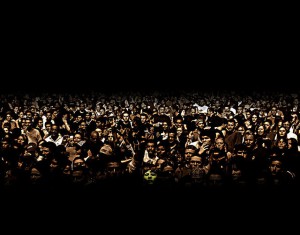The world is as bitter as we perceive it to be and it can be as sweet as we dream it to be. It is just a matter of perception. The latter however, inspires goodness, action and faith.
Facebook, Blogoshpere, Twitter and all these social media has brought humanity together. Now we are more able to understand the feeling, emotions and thoughts about each other. And I am very happy to know that mostly we are together. The morals we share, the boundaries we have for each other, the love that resides within; all points towards a Greater Unity (GU). This GU is something integrating all our suffering, all our pleasures, all our sorrowness, all our merriment and all our knowledge. There is no third world, or first world; developed or under developed; democratic or socialist; these are just emotions that reside in everybody. There are some who hold on dear to something that the other thinks is not that important. But all these concepts and -isms just tends to make us divided but with ease in global consciousness and global communication, these things are fading away. I hope that we move on towards this GU and make this world a better place to spent in the so little time we have.
The reason for this GU are found in our own self. Iqbal said:
The world-life intuitively sees its own needs, and at critical moments defines its own direction. This is what, in the language of religion, we call prophetic revelation. It is only natural that Islam should have flashed across the consciousness of a simple people untouched by any of the ancient cultures, and occupying a geographical position where three continents meet together. The new culture finds the foundation of world-unity in the principle of Tawhid (Oneness of God). 5 The word literally means to exert. In the terminology of Islamic law it means to exert with a view to form an independent judgement on a legal question. The idea, I believe, has its origin in a well-known verse of the Qur’an– “And to those who exert Islam, as a polity, is only a practical means of making this principle a living factor in the intellectual and emotional life of mankind. It demands loyalty to God, not to thrones. And since God is the ultimate spiritual basis of all life, loyalty to God virtually amounts to man’s loyalty to his own ideal nature. The ultimate spiritual basis of all life, as conceived by Islam, is eternal and reveals itself in variety and change. A society based on such a conception of Reality must reconcile, in its life, the categories of permanence and change.
– Iqbal in Reconstruction of Religious Thought in Islam
I face many criticisms on these ideas. Most popular are the ideas of End of the world. That all things are bound to go wrong because the end is near. The other is of conspiracy theorists who claim that there are few secret societies who are actually controlling the minds of the people. These theories are all full of pessimistic attitudes and inspire me to do nothing. This is the biggest flaw I find in them.
